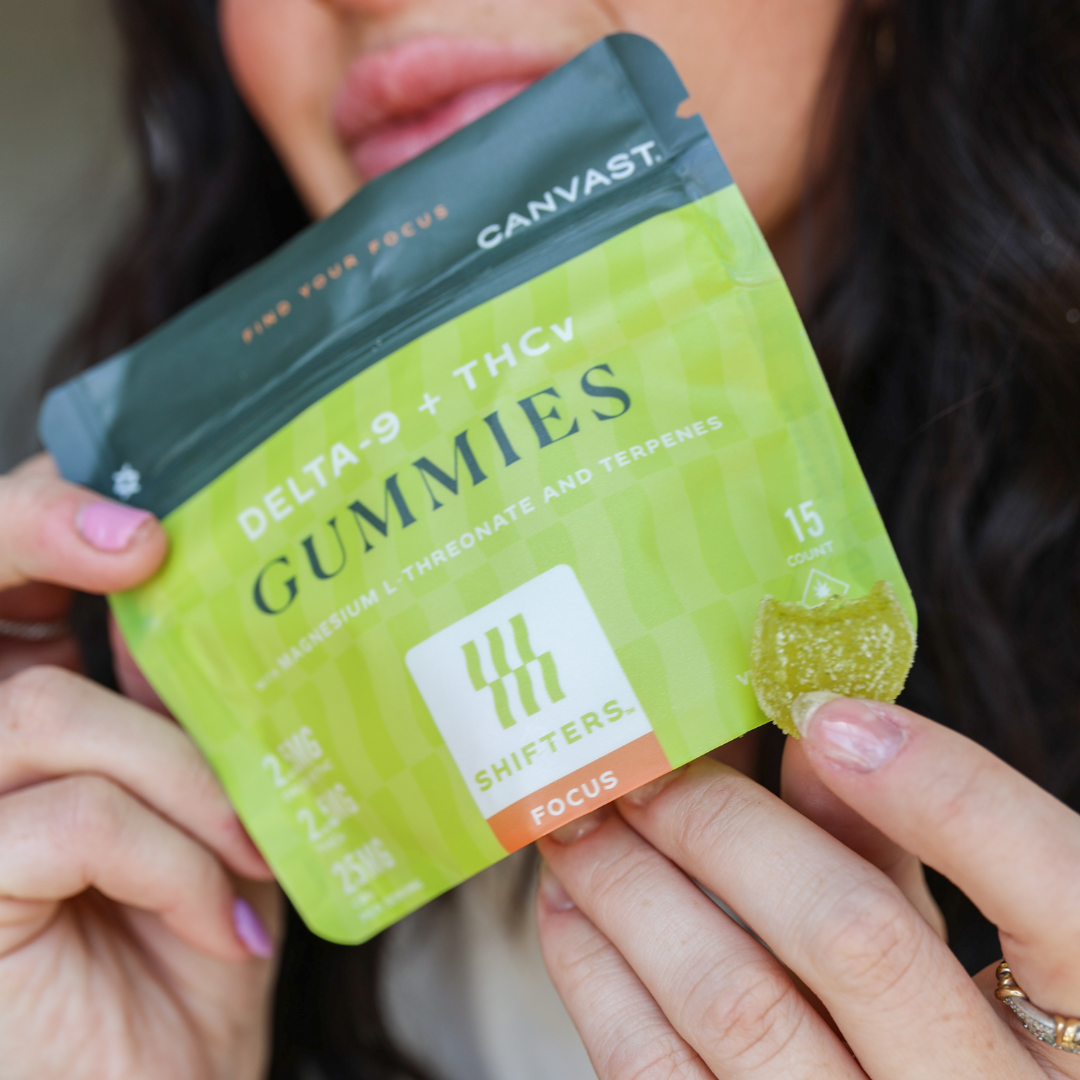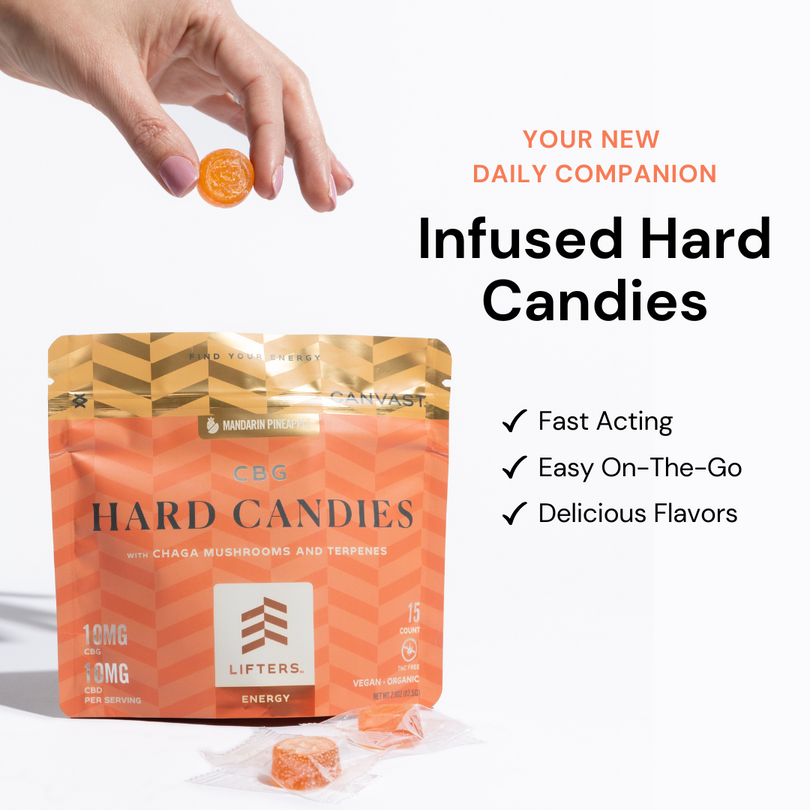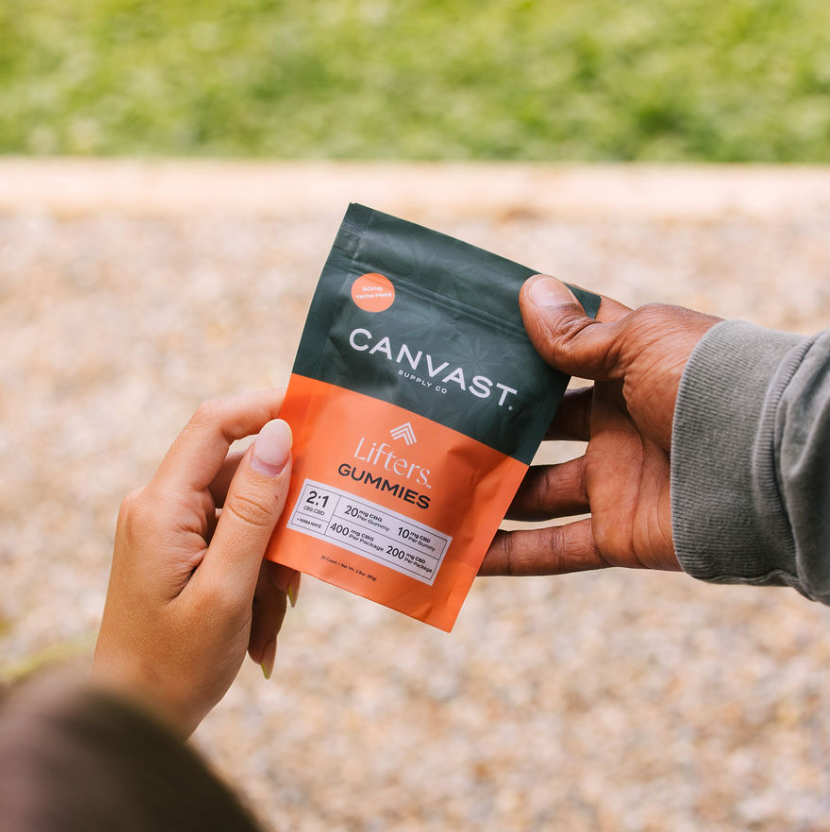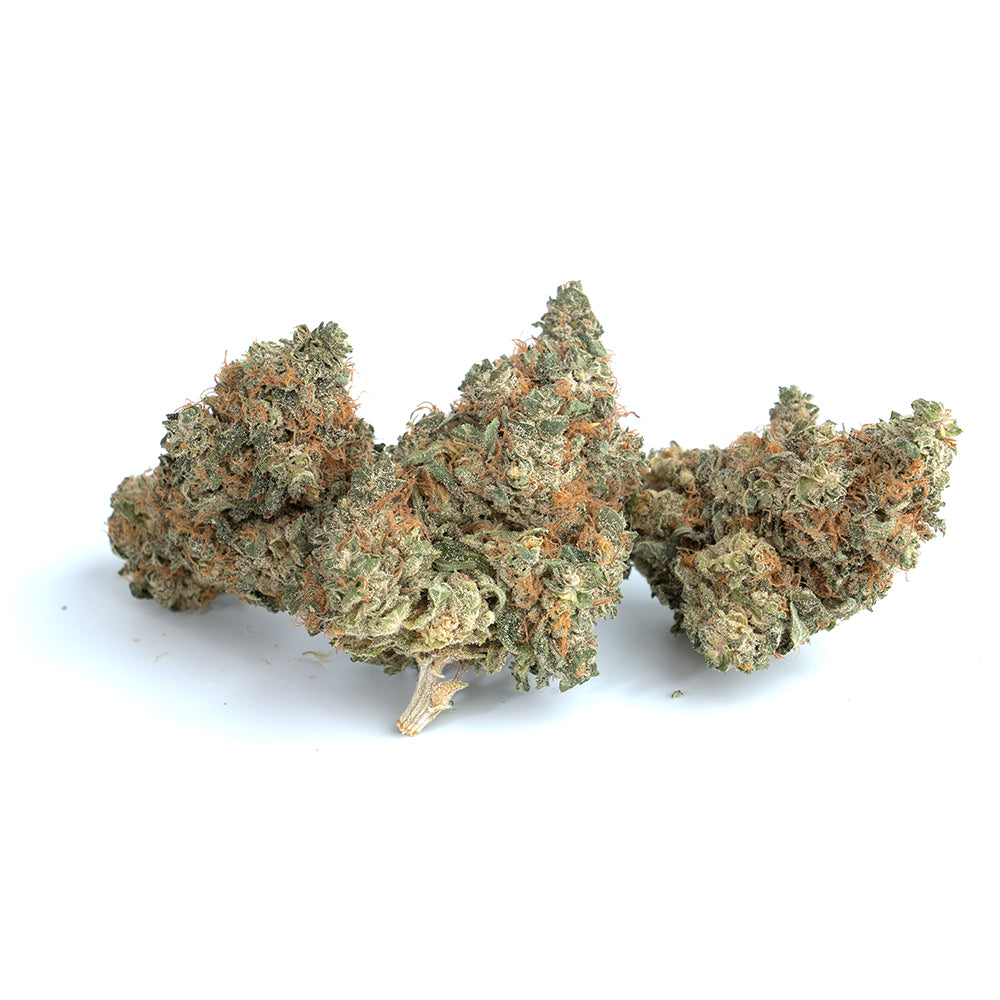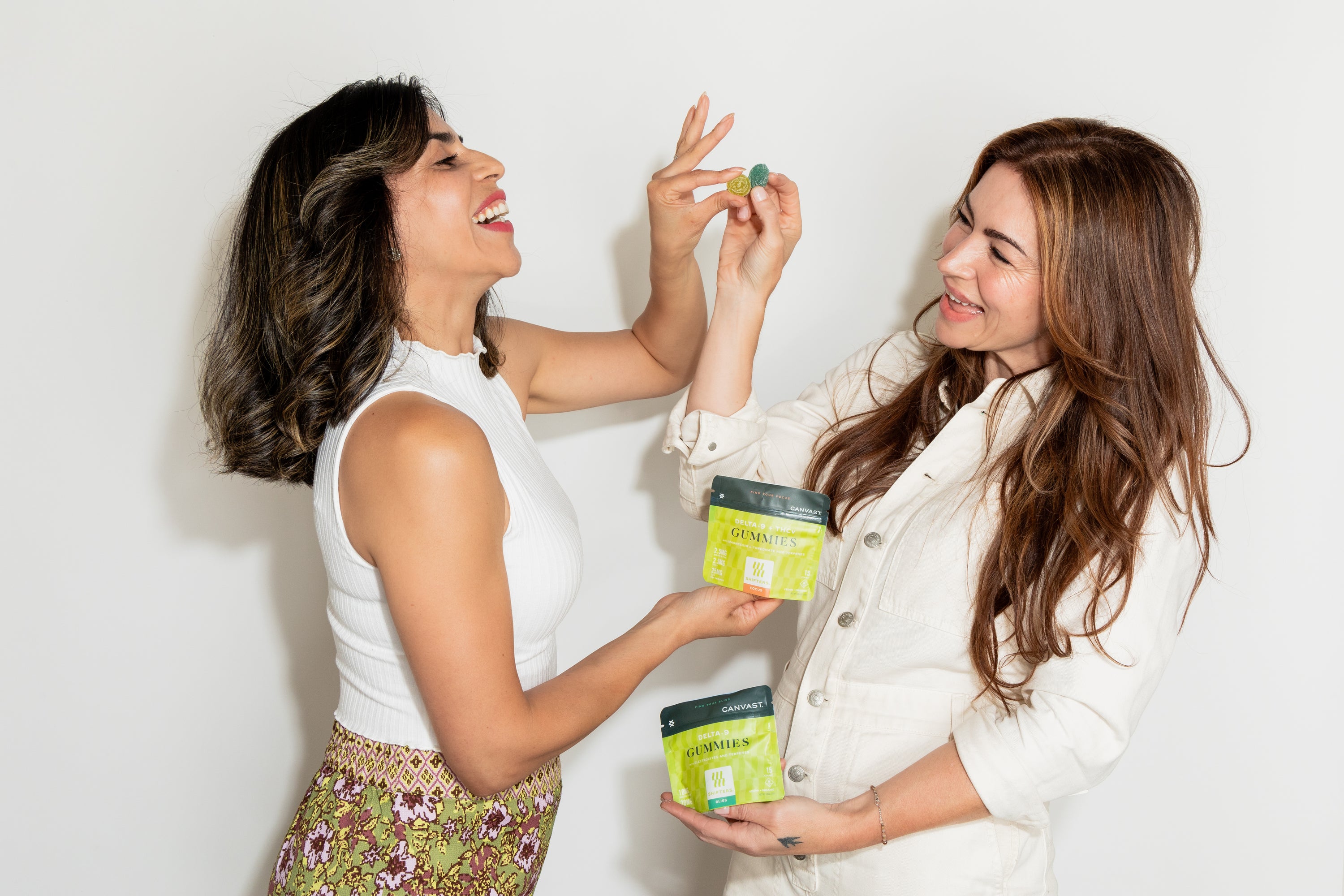Does CBD get you high? What are the actual benefits? Will it show up on a drug test?
Here's everything you need to know about the product that's suddenly everywhere.
First Things First. What is CBD?
CBD, short for cannabidiol, is a chemical compound from the Cannabis sativa plant, which is also known as marijuana or hemp, according to the
US National Library of Medicine.
It's a naturally occurring substance that's used in products like oils and edibles to impart a feeling of relaxation and calm. If you're looking for an in-depth article on the benefits of CBD oils, check out
this article written by data scientist,
Katie Holmes.
Unlike its cousin, delta-9-tetrahydrocannabinol (THC), which is the major active ingredient in marijuana, CBD is not psychoactive.
Will CBD Get Me High?
Nope. The cannabis plant is made up of two main players: CBD and THC. "CBD is the non-psychoactive portion of the plant, so what that means is you won't have any effects like euphoria," says Junella Chin, DO, an osteopathic physician and a medical cannabis expert for cannabisMD. "You won't feel sedated or altered in any way."
There are two possible exceptions to this. The first is that some people, for unknown reasons, just react differently to CBD. According to Dr. Chin, about 5% of people say they feel altered after taking CBD. "Usually they're the same people who have side effects from Advil or Tylenol," she says. You never know how your body will react to any new supplement, so when taking CBD for the first time, do so safely under supervision.
It's also crucial to buy third-party-tested CBD for quality assurance (more on this later). Because the FDA doesn't regulate CBD, it is possible to buy a product that is more or less potent than advertised or even contains small amounts of THC.
Where Does CBD Come From?
You've probably heard the terms cannabis, marijuana, and hemp all tossed around in relation to CBD. The plant Cannabis sativa has two primary species, hemp and marijuana. Both contain CBD, but there's a much higher percentage in hemp, which also has very low (less than 0.3%) levels of THC compared to marijuana.
When people talk about hemp oil, they're referring to oil extracted from the seeds of the hemp plant. There are no cannabinoids—CBD or THC—in hemp oil. This ingredient is packed with healthy fats and
often appears in beauty products for its moisturizing benefits.
What's the Best Way to Take CBD?
It really depends on what your goal is and why you're taking CBD in the first place. Some people don't want to ingest anything and therefore prefer a topical CBD cream or ointment. "You can apply it to muscles, joints, and ligaments and still get a nice, localized release," Dr. Chin says.
The biggest differences between tinctures, edibles, and vape pens are the speed of delivery and how long the effects last. Vape relief is faster but wears off faster too—usually in about two hours, says Dr. Chin. "Say you wake up in the morning and pulled your back out, you might want to take CBD through a vape pen, which delivers in 10 minutes."
Tinctures and edibles take longer to work but last four or five hours. "A tincture looks like a little liquid that you put under your tongue, and you feel relief within half an hour," Dr. Chin says. "If you prefer to taste something, you choose an edible, whether it's a capsule, gummy, or baked good."
What Should I Look for When Shopping for CBD Products?
We don't mean the color or millennial font. If it's a dietary supplement, it should have a back panel with an FDA disclaimer and warning section, according to Beatty. "Ideally, it would be preferable to have access to their third-party lab testing results too."
Speaking of which: Has it been third-party tested?
Nearly every expert Health spoke to agreed that your CBD products should be tested by a third party to confirm the label's accuracy.
This is a real concern in the industry—take the 2017 Journal of the American Medical Association study, for example, which tested 84 CBD products and found that 26%
contained lower doses than stated on the bottle.
Look for a quality assurance stamp or certificate of analysis from a third party (aka not the actual brand) or check the retailer's website if you don't see it on the product's label.
What's the Proper Dose for CBD?
When thinking about dosing, also consider whether your CBD is full-spectrum or isolate: Full-spectrum could include other cannabinoids like cannabidivarin or cannabigerol (this is important, since "there's something called the 'entourage effect' when all together, they're more effective than anyone of them alone,"), while isolate is 100% CBD. "Some people might only need 10 milligrams of full-spectrum CBD, but with isolate, even taking 80 or 100 milligrams might not have the same effect," he says.
Does CBD Cure Any Diseases?
If so, hard pass. "You should avoid any company that makes disease claims," says Beatty. "If so, it means they're either willing to break the rules or they're not aware of the rules."
Are There Additional Ingredients in CBD?
As with any supplement, you want to know everything you're ingesting in addition to the main event. For example, "sometimes I notice that [CBD manufacturers] will add
melatonin," says Dr. Chin.
Are You Buying it IRL?
You can find CBD products in shopping malls, convenience stores, even coffee shops in many states right now. But when in doubt, natural grocers are a safe brick-and-mortar place to buy CBD, Beatty says. "Typically they have a vetting process that does some of the legwork for you."
Is CBD legal?
First, a little background. Industrial hemp was legal in the United States until Congress passed the Marihuana Tax Act in 1937. ("Some of our early presidents grew hemp," notes
Sarah Lee Gossett Parrish, a cannabis industry attorney based in Oklahoma.) Nearly 80 years later, the 2014 Farm Bill took the position that states can regulate the production of hemp and, as a result, CBD.
Then last year, President Trump signed a new Farm Bill that
made it federally legal to grow hemp. This means that "consumers everywhere if they're compliant with their state, can grow hemp and use hemp products," Parrish explains, "and among those will be CBD."
In other words, the latest bill removed hemp from the Drug Enforcement Administration, or DEA's, purview. "Hemp can now be grown freely under federal law, which, of course, is huge," Parrish says. "But while it's legal under federal law, it's up to each state to set their own policy."
These policies vary widely. Marijuana and CBD are currently fully legal for both medicinal and recreational purposes in Alaska, California, Colorado, Maine, Massachusetts, Michigan, Nevada, Oregon, Vermont, Washington, and Washington D.C.
In 23 states, it's legal in some form, such as for medicinal purposes. Another 14 states permit just CBD oil. But both are illegal in Idaho, Nebraska, and South Dakota. For more information, the organization Americans for Safe Access has a
helpful guide to the specific laws in each state.
"It's kind of ironic," says Parrish. "With marijuana, we have got the federal government saying 'No' and a bunch of states saying 'Yeah, it's OK'—but with hemp, the feds say 'Yeah, it's OK,' but we still have some states saying it's not."
Can You Travel With CBD?
That same 2018 Farm Bill means you can now travel between states with legit CBD products. "Flying with CBD should pose no issues now," Parrish says. However, if you're traveling with a tincture, be mindful of TSA limits on how much liquid you can carry on an airplane, she adds. (You can also mail CBD products, just like "companies that comply with the Bill can ship their hemp-derived CBD products anywhere in the U.S.," Parrish notes.)
Will CBD Show Up on a Drug Test?
It should not, as long as you're buying third-party tested CBD with no added THC, says Dr. Chin. But she does point out that athletes, who often are required to take drug tests that are more sensitive, "could potentially test positive" for trace amounts of THC if they've been using CBD products.
Can I Give CBD to My Dog?
Tempted to give your pup one of those CBD dog biscuits? "Generally we expect CBD products to be safe, and they could show some benefit for anxiety in pets," says John Faught, DVM, a veterinarian based in Austin, Texas.
But the challenge when considering CBD products for pets is the same as with people: lack of research. "I believe there are good products out there today, but I also don't know how to distinguish them at this time," Faught says.
Cited Source

